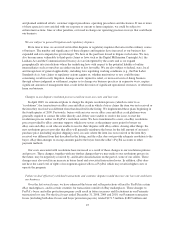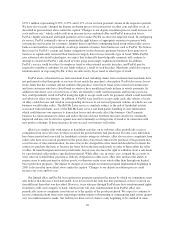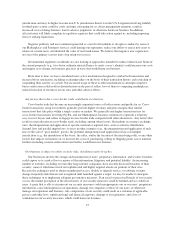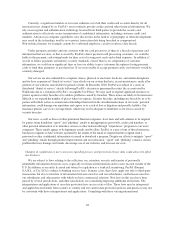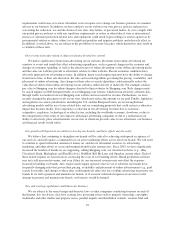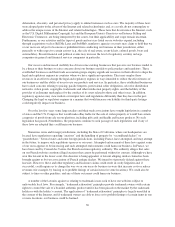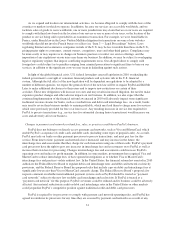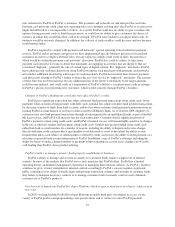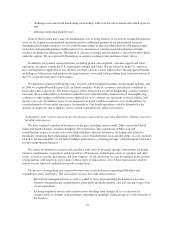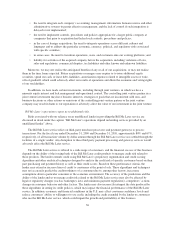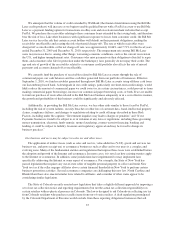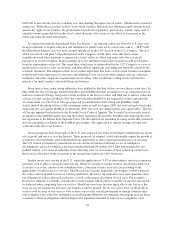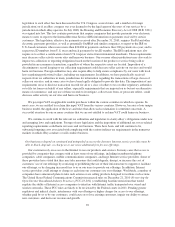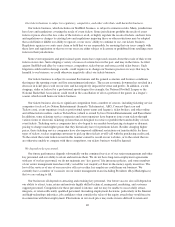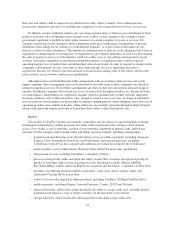eBay 2010 Annual Report Download - page 39
Download and view the complete annual report
Please find page 39 of the 2010 eBay annual report below. You can navigate through the pages in the report by either clicking on the pages listed below, or by using the keyword search tool below to find specific information within the annual report.in 2002 we withdrew our eBay marketplace offering from the Japanese market, and in 2007 we contributed our
business in China to a joint venture with a local Chinese company. Even if we are successful in developing new
markets, we often expect the costs of operating new sites to exceed our net revenues from those sites for at least
12 months in most countries.
As we continue to expand internationally, including through the expansion of PayPal, Shopping.com, and
our classified businesses, we are increasingly subject to risks of doing business internationally, including the
following:
• strong local competitors;
• regulatory requirements, including regulation of Internet services, auctioneering, professional selling,
distance selling, privacy and data protection, banking, and money transmitting, that may limit or
prevent the offering of our services in some jurisdictions, prevent enforceable agreements between
sellers and buyers, prohibit the listing of certain categories of goods, require product changes, require
special licensure, subject us to various taxes, penalties or audits, or limit the transfer of information
between us and our affiliates;
• greater liability or legal uncertainty regarding our liability for the listings and other content provided by
our users, including uncertainty as a result of legal systems that are less developed with respect to the
Internet, unique local laws, conflicting court decisions and lack of clear precedent or applicable law;
• cultural ambivalence towards, or non-acceptance of, online trading;
• laws and business practices that favor local competitors or prohibit or limit foreign ownership of
certain businesses;
• difficulties in integrating with local payment providers, including banks, credit and debit card
networks, and electronic fund transfer systems;
• differing levels of retail distribution, shipping, and Internet infrastructures;
• different employee/employer relationships and labor laws, and the existence of workers’ councils and
labor unions;
• difficulties in staffing and managing foreign operations;
• challenges associated with joint venture relationships and minority investments, including dependence
on our joint venture partners;
• difficulties in implementing and maintaining adequate internal controls;
• longer payment cycles, different accounting practices, and greater problems in collecting accounts
receivable;
• potentially adverse tax consequences, including local taxation of our fees or of transactions on our
websites;
• higher Internet service provider costs;
• different and more stringent user protection, data protection, privacy and other laws;
• seasonal reductions in business activity;
• expenses associated with localizing our products, including offering customers the ability to transact
business in the local currency;
• restrictions on the repatriation of funds, foreign currency exchange restrictions, and exchange rate
fluctuations;
• volatility in a specific country’s or region’s political, economic or military conditions (e.g., in South
Korea relating to its disputes with North Korea);
34



